Podcast: Download
Subscribe: Apple Podcasts | RSS
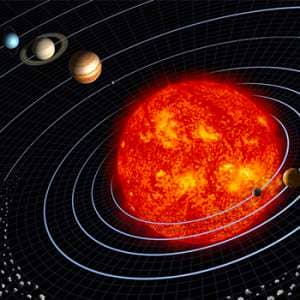 Memorizing the planets is one of the coolest things you can do.
Memorizing the planets is one of the coolest things you can do.
But finding the best planet mnemonic can be tricky.
That’s because the best planet mnemonic for someone else might not be the best approach for you.
That’s why I’m going to share an alternative to acronyms and acrostic mnemonics for the planets on this page.
And you’ll probably find the hermetic mnemonic for planets especially useful.
It’s definitely my favorite and works fast!
The Simple and Effective Planet Mnemonic
Let’s get one thing clear:
Simple doesn’t necessarily mean easy.
But when you use an effective planet mnemonic and have fun with it, you will enjoy efficiency with learning as much of the solar system as you wish.
As you rapidly absorb the knowledge using these techniques, you can add details about each planet to your memory with ease.
For learning the planets, I recommend using a Memory Palace. Even if you use an acrostic inside of a Memory Palace, I think you’ll find using your spatial memory as part of the process much more powerful.
What is a Memory Palace? It’s a mental image based on a familiar location. You simply place the names of the planets along a journey in this location and use funny or weird associations to trigger the target information.
To get started, pick any room. Then assign a spot for each of the planets you want to memorize.
Let’s say you’re going for a comprehensive solar system mnemonic that includes:
- Mercury
- Venus
- Earth
- Mars
- Ceres
- Jupiter
- Saturn
- Uranus
- Neptune
- Pluto
- Haumea
- Makemake
- Eris
This means you need 13 stations in your Memory Palace.
As you can see in the illustration above, it’s easy to assign stations in any room for this amount of information.
Next, you simply place a mnemonic image that helps you remember the name of each planet in order.
For example, on station one, you can place something that reminds you of Mercury.
You could choose the mythical god Mercury. Or a car, like a Mercury Grand Marquis.
Or you could combine the mythical god and the car in an unusual way to help you remember that you mentally placed Mercury in that part of the room. This is the kind of approach that makes memorizing planets so much fun.
You then simply repeat the process, using simple pegword associations throughout the room you chose.
The Hermetic Memory Palace For the Classic Solar System
Recently, I wanted to memorize the solar system as it was used in the Italic Hermetic Tradition.
Or better said, I adapted it in a particular way for one of my applied memory experiments.
(See David Pantano’s The Magic Door for the source of my inspiration.)
To do this, I memorized the seven classical planets using my body as the Memory Palace.
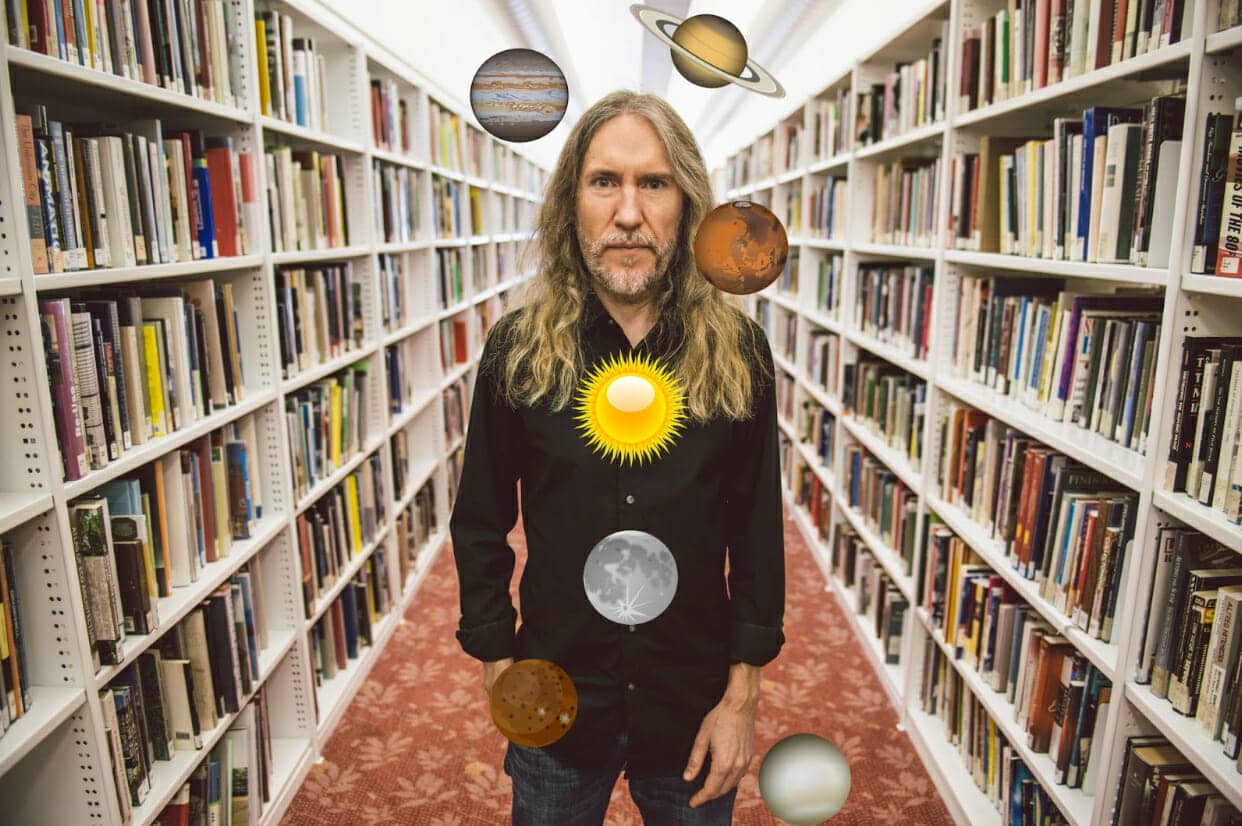
Using the human body as a mnemonic device for the planets and information about the solar system is easy.
In this case, I needed only seven stations.
- Saturn (the space above my head)
- Jupiter (the top of my head)
- Mars (mouth)
- Sun (chest)
- Moon (belly)
- Mercury (hip joint)
- Venus (thigh)
To add more planets, you would simply create more stations.
You can also link each of these stations to numbers using the Major Method. I talked about this style of Memory Palace with memory expert Ron White in this detailed interview.
To add details about the planets is easy once they’re in place. For example, the hermeticists considered Mars an image of willpower. So near my mouth, I imagined this planet clamping my mouth closed to help me hold my tongue as an act of willpower.
Acrostic For The Planets
Typically, you’ll find examples of planet mnemonics in the form of acrostics.
This type of memory technique involves assigning a word to each letter in an attempt to create a memorable phrase.
Common examples for different amounts of planets include:
- My Very Educated Mother Just Served Us Nine Pizzas
- Men Very Easily Make Jugs Serve Useful Needs, Perhaps
- Mary’s violet eyes make Johnnie stay up nights pondering
Personally, I find all of these mnemonic examples vague, abstract and hard to memorize.
They’re not adaptable either. You can’t easily expand them to include more space for more planets and information as we discover it.
But with a Memory Palace you can.
If you use your body, you can even duplicate yourself inside of a Memory Palace to create more space.
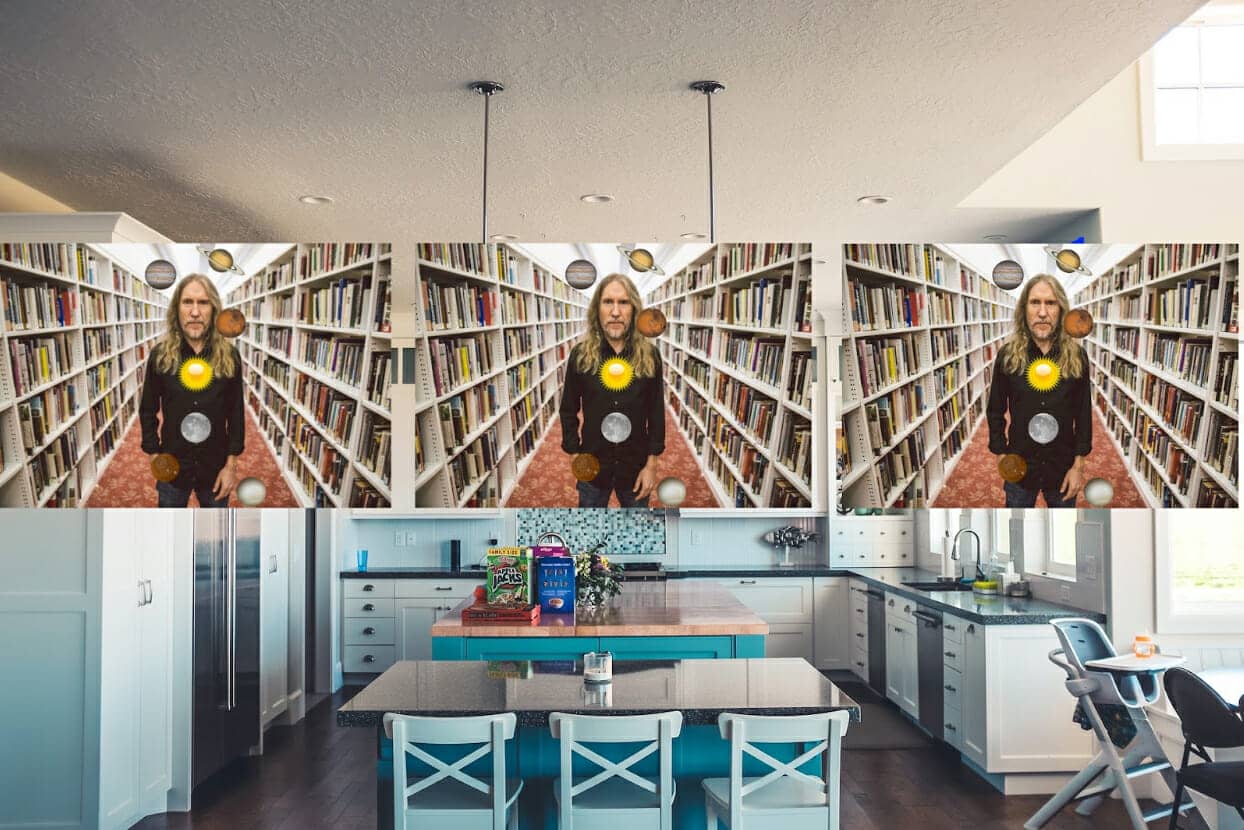
This approach uses a mnemonic device called the Bridging Figure. It’s a principle taught in the Magnetic Memory Method Masterclass.
The Ultimate Solar System Mnemonic
In brief, I think the best mnemonic strategy for the planets is the Memory Palace technique.
If you still like using planet acrostics, you can help yourself remember them better by stringing them out in a Memory Palace. Or you can explore the story and linking method.
In all things, experimentation with a wide variety of mnemonic strategies is important. On the matter of experimentation, keep in mind that you can also use each and every planet you memorize itself as a Memory Palace. Here’s an example of how that works using the moon:
And if you’d like to learn more about these techniques, please consider signing up for my FREE Memory Improvement Kit:
It will help you create the perfect system of associations for mastering knowledge of the planets. Both what we know currently and what people thought about the planets in the past.
After all, that’s what true astronomy is all about: the past, the present and what we imagine we’ll discover in the future.
So what do you say?
Are you ready to deeply absorb information about our galaxy?
To infinity!
Related Posts
- Effective Sacral Plexus Mnemonic + Lumbar Plexus Mnemonic
Stop seeking the best Sacral plexus mnemonics. Learn the correct way to instantly memorize the…
- Mnemonic Devices: Top 10 Tools For Boosting Your Memory Fast
What are mnemonic devices, and how can you use them to remember? This post shows…
- Mnemonic Images: What They Are & How They Help
Mnemonic images are much more than just mental pictures. Learn to go beyond visual mnemonics…

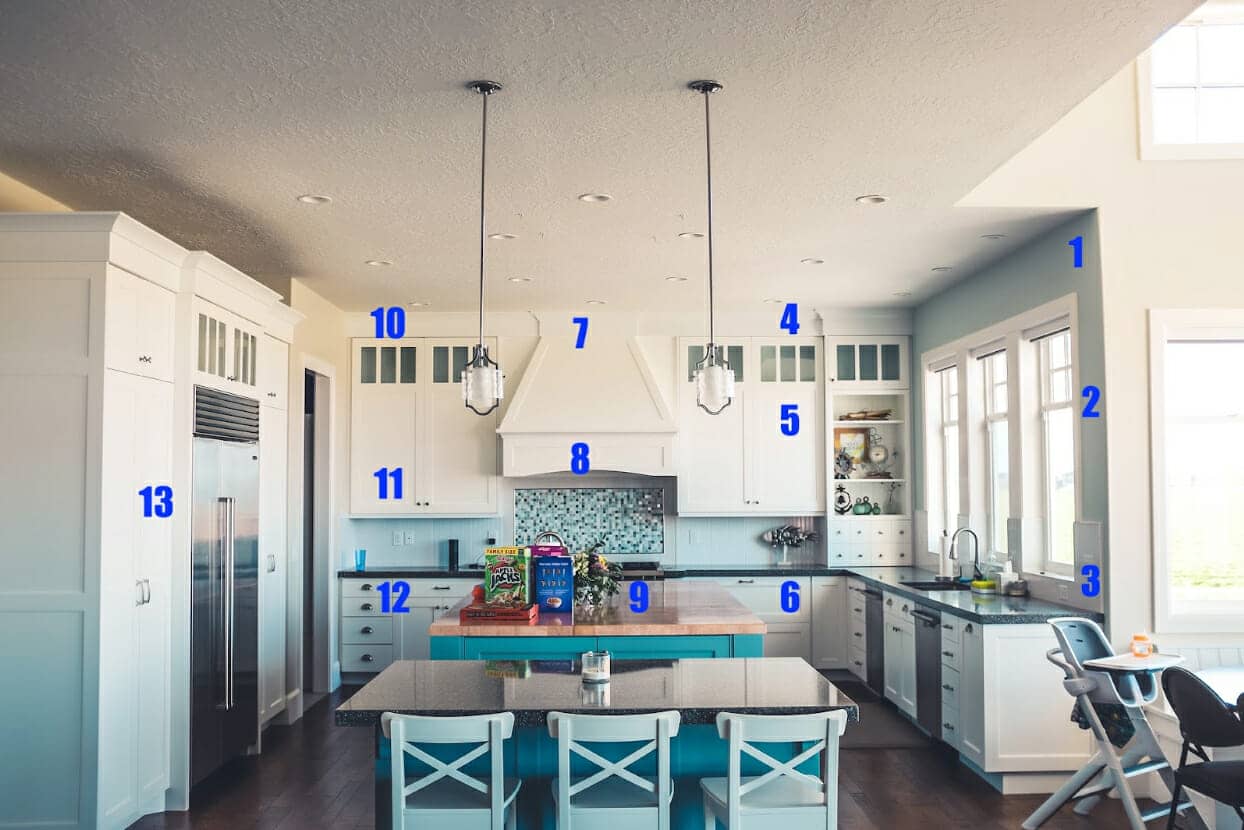
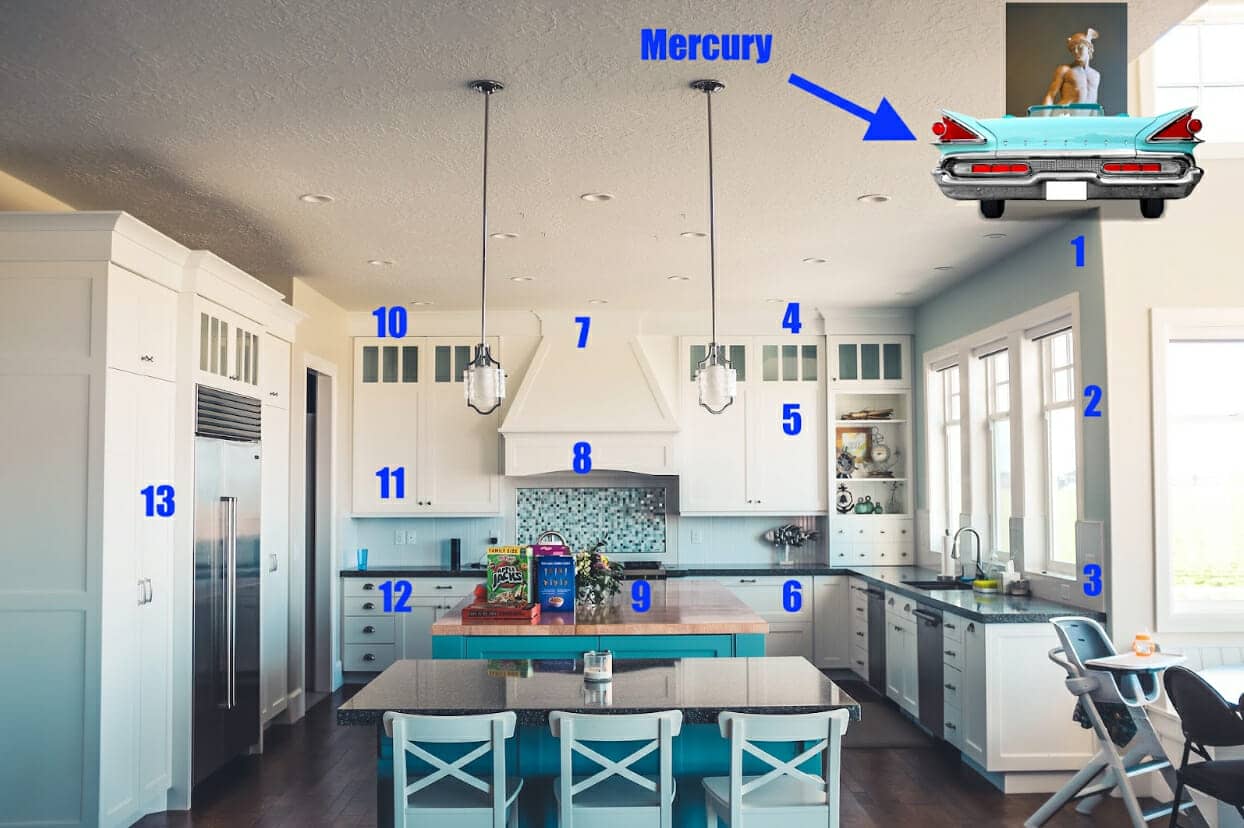




8 Responses
Hi Anthony,
I personally do not like acrostics for general application since they can easily be forgotten unless well structured and memorable.
I agree that a memory palace is more appropriate, compared to acrostic. In the last week I memorised the first 40 elements of the Periodic Table using 2 friends’ houses. Similar to Ron White, I prefer to use a maximum of 5 stations in a room. Then it is much easier to locate, say #38 which is Strontium, since the 3rd item in the 4th room in friend Chris’s house. In saying that I have memorised the US presidents in my house but 10 in a room. Then more difficult to identify say the 7th president unless you start with #10 and walk back.
I suggest the same rationale will apply to the sequence of planets? A body system has a cap as to number of items to memorise, thus can not easily be expanded.
I use the body method for quick grocery shopping like ingredients for a specific recipe since normally a few items.
Thanks kindly for this, Tian.
One alternative you can try is numbering each station using a 00-99 PAO system. That way, the image on each station tells you what the information on that station is.
But of course, it’s the MMM Recall Rehearsal technique that makes all approaches so much valuable in the end. Using it, all the information gets into long term memory. You don’t have enter the Memory Palaces at all to refer to the information.
One certainly can enter the original Memory Palace if desired, and that can be useful for compounding more information onto the original piece. But it’s not necessary to do so.
In terms of having a fixed number of stations per Memory Palace, the only time I do this is when using the Pillar Technique, but even then, the exact number of stations can change depending on exactly how it is used.
Thanks again for sharing your experiences and talk soon!
I didn’t have a palace to mind so I just did it this way
Imagine the Sun with the Queen song ‘A kind of magic’ slowly fading in as we see Freddy Mercury come around from behind the sun eating a delicious and fragrant plate of curry. Suddenly he chomps on something nasty in his curry with his pronounced front teeth and see’s it’s a miniature Venus fly trap (we also hear the Venus song) which is slowly closing on a little cherub Cupid firing an arrow that then hits the earth with a thud. It has pinned a Mars bar to the to the ground. Now we see a cheeky Peter Pan wearing a Kippa (Jewish Peter) Jupiter that grabs the mars and scoffs it down as he sits and turns (Saturn) On his butt (Uranus). He’s somewhat surprised as suddenly his butt makes a funny neeeeeeep tune…
Voila 😀 That was fun
Great mnemonics – thanks for taking a moment to share them!
What would you imagine as working well if you could not associate Uranus with a body part? It’s often a good exercise to think about approaching mnemonic tasks as if English was not one’s mother tongue.
I also thought of making Peter huge to point out that Jupiter is the biggest planet (in our solar system).
As for mother tongue, English is my maternal language and I’m bilingual French so I often hesitate with using a french or an English word for mnemonics or even in general conversation -sometimes haha!
I think if Peter just sat and turned to see a red hot glowing ball of uranium next to him, burning his fancy jacket, then would be scary and memorable with no need for butt jokes 😄
Great alternative example.
I’m not at all against body puns, but always this one is a great opportunity to practice coming up with alternatives. Yours is great!
The Memory Palace sounds like a great idea. Just one thing, for those of us who can’t visualize, how would you do a memory palace? I’ve always wanted to increase my memory, but I don’t see how this would work for me.
Great question.
As it happens, people can use this technique without a mind’s eye. There’s even an accomplished memory competitor and world renowned memory expert named Lynne Kelly who has aphantasia. She’s been on my podcast a few times and the most recent time we talked about using the technique even if you can’t see it.
You might also want to search this blog for my post on “mental imagery.” It’s not what it sounds like and I’m sure you’ll find exploring its multi-sensory subtleties rewarding.
Finally, notice your own language and the implications. You say that you don’t “see” how this would work for you, and that’s okay. This is not something that is seen in advanced, but developed through taking action.
Many people start as skeptics, but true skeptics that test for themselves by entering the territory. It can never be experienced in advance, let alone seen, so it’s important to take action and I’ll be happy to answer any further questions you may have about this reply or any of the resources I’ve suggested.
And there’s another one on this site called aphantasia cure, which discusses how that I sorted all of this out for myself. I’m sure glad I took action because there are many wonderful mental adventures to be had when mental imagery is understood in its full context.